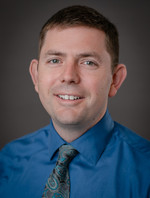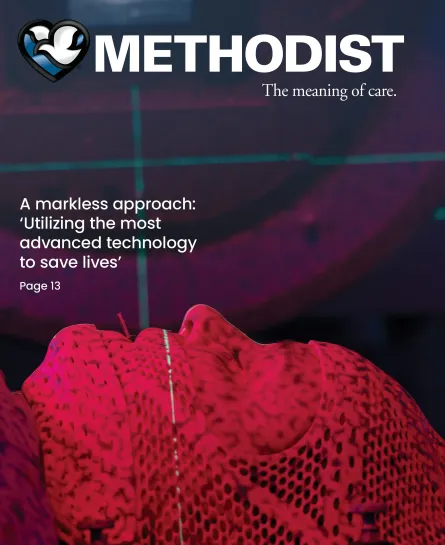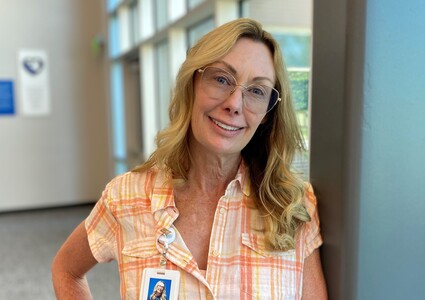





Cancer Care
Prostate Cancer Support Group Offers Men Camaraderie, Sense of Belonging
Published: Sept. 23, 2022
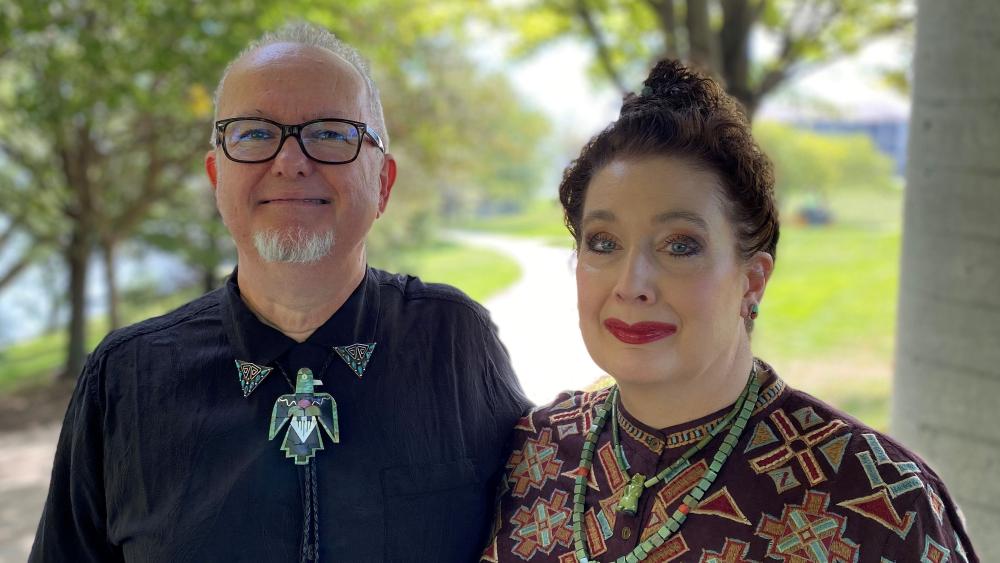
Prostate cancer survivor Steve Jensen with his wife, Catherine. "My wife has been with me every step of the way on my cancer journey," Steve said.
Steve Jensen was in a familiar place when he parked outside Methodist Estabrook Cancer Center (MECC) one Thursday evening last January.
For nearly a year, the prostate cancer survivor had been frequenting MECC and neighboring Methodist Hospital for treatment and follow-up visits. But he wasn’t there for another appointment that particular evening. He was attending his first MECC Prostate Cancer Support Group meeting – where patients, survivors and loved ones gather monthly to share experiences and offer each other support and guidance.
Steve’s cancer journey began in February 2021, when a prostate-specific antigen (PSA) test during a routine physical revealed an elevated level of the protein, which could indicate cancer. Then an ultrasound and biopsy confirmed the suspected diagnosis.
“I really just kind of became lost,” he said. “I’ve always just kind of gone to work and put away for retirement. Now I was like, I don’t get to retire. I’m going to be dead. If I didn’t do anything, I wouldn’t be here now.”
In April 2021, Steve underwent a prostatectomy at Methodist Hospital to remove his prostate gland and the cancer. Subsequent PSA tests last fall indicated some cancer may still be present, so Steve underwent nine weeks of radiation therapy – 39 treatments – at MECC.
He was still in the midst of those treatments, and struggling mentally, when he attended his first Prostate Cancer Support Group meeting. But what he found was a breath of fresh air.
“I was really welcomed into this group,” said Steve, 56. “The first night I was there, I really opened up. On the way out, one of the guys said they’d never had anyone the first night be as open and as frank as I was. I felt really good about that. And on the way home, I was like, ‘Wow. This is something that’s good and that’s needed.’”

A Difficult Topic
Prostate cancer is the second most common cancer for American men, with over 260,000 new cases and over 34,000 deaths annually.
Despite its prevalence, it’s not an easy topic to discuss. Men may already have a hard time sharing difficult experiences of any kind, and discussing prostate cancer isn’t as normalized as other conditions like breast cancer, Steve said.
That’s where the support group comes in, breaking down barriers in a safe environment where any topic is on the table.
“Guys don’t like talking about that area,” Steve said. “It’s not an easy conversation at all, but once you start talking about it, you just feel better. When you’re talking face to face with somebody that’s been in a surgery and done the same thing you have, it kind of wakes you up a little bit. ‘Well, I’m not the only one who’s had it.’”
Led by Christine Townsend, MSEd, RN, IBCLC, a nurse navigator at MECC, the meetings are participant-driven and don’t follow a strict agenda. Men lead off by introducing themselves and sharing their experiences, but their discussions can shift to a range of topics, including PSA tests, nutrition advice, physical therapy, challenges with incontinence and other lifestyle changes, and mental health.
“The things they discuss are so important,” Townsend said. “It’s so profound how they let go – sharing things they don’t tell their neighbors. Day in and day out, they do their thing, but they don’t tell anyone. They like that they can be safe here.”
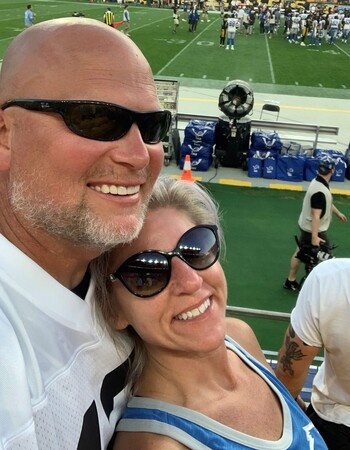
“No Judgment”
Jerry Swanda was 42 when he was diagnosed with prostate cancer in July 2014. He had been urinating frequently, and his doctor thought he may have prostatitis – inflammation in and around the prostate. But Jerry didn’t meet the general risk factors for the condition.
Testing showed a high level of PSA in his blood, a biopsy confirmed his cancer, and doctors learned that it had metastasized to his groin and some vertebrae.
“It was very, very scary,” Jerry said. “I was not in control. I had to trust these doctors and specialists to say, ‘This is the best plan for you.’”
That plan included a prostatectomy, 33 rounds of radiation and medication aimed at controlling the cancer. He started attending the support group the following November.
He’ll never forget that first meeting after a long day of work.
“I thought, I’m just too wiped out to go,” he said. “But then I went. I was nervous, and I didn’t know what to expect. But there was this sense of belonging and camaraderie. And no judgment. I had felt like I did something wrong to get this cancer. But it was such a safe environment to talk and just pour your guts out in a way.”
He added: “I always feel great after those meetings. I feel fantastic that I can talk about it. And I’m normally a guy who will talk about anything, but I will not talk about anything that will cause stress for you to worry about me. I’m not going to trouble you and tell you my story. I don’t think that defines me at all.”
Townsend agrees, and as she spreads the word about the group, she wants people to know how powerful the monthly meeting can be.
“Every single person who comes in there literally has a different story,” she said. “No two will ever be the same. Definitely don’t come in with preconceived thinking. Prostate cancer is a diagnosis, but it’s not the person.”
More Resources
- Learn more about the Prostate Cancer Support Group and upcoming meetings.
- Read more stories about cancer care at Methodist.
- Learn about resources offered through the Harper’s Hope cancer survivorship program.

